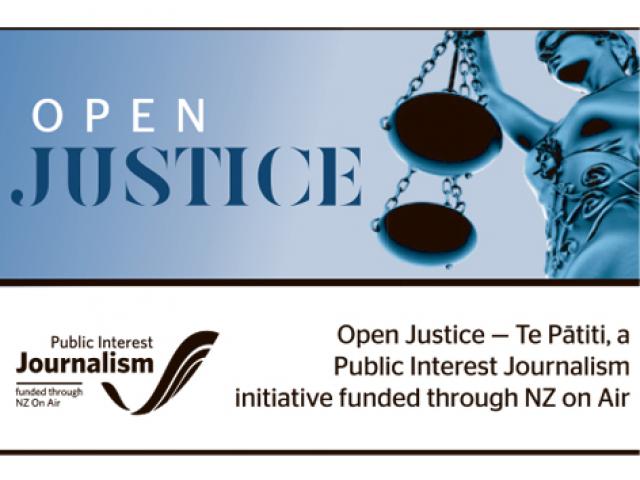The adult children of a man who abused and tormented them when they were young have lost a last-ditch legal bid to gain access to $700,000 worth of his assets, which he left in trust to another family when he died.
The father, identified only by the fictitious name Robert in court documents, repeatedly raped and sexually abused his daughter Alice between the ages of 7 and 13.
He continued to abuse her emotionally through her teenage years.

The real names of all have been suppressed and published court documents refer to them by pseudonyms.
Today, justices of the Supreme Court described in a judgment the level of abuse meted out to the children as “most shocking”.
Barry said he was “repeatedly and sadistically” beaten with the buckle end of his father’s belt for the most minor things.
All three siblings left home as teenagers and had almost no contact with their father for 30 years.
When Robert died in 2016, he left the bulk of his estate – amounting to about $700,000 – to a trust fund that benefited the children and grandchildren of a long-term female friend.
He made no provision for his own children, who had all struggled in their adult lives as a result of his abuse.
After Robert died, Alice, Barry and Cliff claimed under the Family Protection Act 1955, seeking to be provided for from their father’s estate.
However, Robert’s home and some shares had been transferred to the trust set up for the benefit of his friend’s family, putting it beyond the reach of their Family Protection Act claim.
The siblings went to the High Court claiming that Robert had breached his “fiduciary duty” - a legal responsibility to act in their interests.
While the High Court ruled in the siblings’ favour, that decision was later overturned by the Court of Appeal.
The siblings then took their case to the Supreme Court.
The Supreme Court justices held that there was no fiduciary relationship between Robert and his children at the time he transferred his assets into the trust.
In unanimously dismissing the appeal, the Supreme Court held up the earlier findings of the Court of Appeal.
These were that while Robert was in breach of his “fiduciary duty” by sexually and physically assaulting his daughter and sons when they were children, this did not mean they were entitled to the assets he left behind when he died.
It was found that Robert’s fiduciary duty to his offspring ended when he ceased to have caregiving responsibilities to them.
This was most likely when they each left home as teenagers, and certainly by the time they became adults.
“Those assets were, in law, Robert’s to dispose of as he pleased,” the Supreme Court justices said.
“Whatever moral claims the appellants had to those assets, Robert did not hold them as a fiduciary for them.”
Court documents from the various hearings in the case detail the effects that the childhood abuse had on the siblings as they grew up.
Alice’s self-esteem was so low she tried to end her own life when she was 11.
She went on to develop an eating disorder, suffered from depression and found it difficult to maintain relationships and hold down a job.
After getting support from ACC for counselling, Alice confided in her brothers and mother, Rose, that Robert had sexually abused her.
Rose wrote a letter to Robert, confronting him about the “unforgivable” abuse.
In return, she received a letter from his lawyers saying that the allegations were false and defamatory, and if the statements were repeated legal action would be taken.
Barry left school and became involved in gangs as a teen, resulting in him getting stabbed and admitted to the hospital with life-threatening injuries. Robert did not visit his son in hospital.
Cliff also left home as a teen, after suffering from and witnessing Robert’s violence, and effectively had no contact with his father from then on.
He also developed a “severe and prolonged” drug addiction, and nearly died several times.
Following the parents’ marriage separation, Alice said Robert sometimes stood outside pointing a gun at their house and made threatening phone calls during the night.
Robert’s friend, named Phillipa in the documents, described him as a caring friend and said she never had any concerns about his relationship with her own children and grandchildren.
She also said Robert had tried to reconnect with his children but his efforts were “rebuffed”.
From 2001 to 2005 Robert prepared seven wills, in which initially $25,000 was to be left to each of his children.
However, over the years, changes were made to the wills until in 2014 Robert set up a trust to protect his assets in the event he became ill and to “prevent any of his family from chasing” his assets.
Robert, as well as Phillipa’s daughter’s partner, were trustees. The beneficiaries of the trust include Phillipa’s three children and her grandchildren who were secondary beneficiaries.
Robert gifted his home and some shares to the trust, taking its total value to about $700,000.
In 2016 he executed his final will, in which Alice, Barry and Cliff were not included as beneficiaries.
SEXUAL HARM
Where to get help:
If it's an emergency and you feel that you or someone else is at risk, call 111.
If you've ever experienced sexual assault or abuse and need to talk to someone, contact Safe to Talk confidentially, any time 24/7:
• Call 0800 044 334
• Text 4334
• Email support@safetotalk.nz
• For more info or to web chat visit safetotalk.nz
Alternatively contact your local police station - click here for a list.
If you have been sexually assaulted, remember it's not your fault.
- By Ric Stevens












